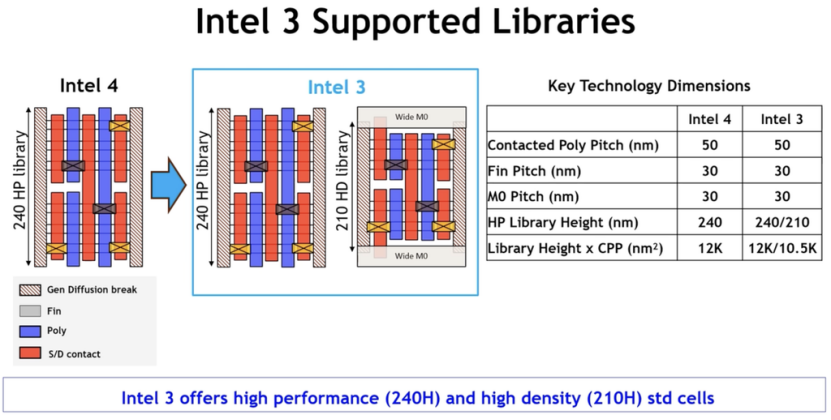
On June 20th, according to a report by Tom's Hardware, Intel announced that its 3nm process technology, branded as "Intel 3," has commenced large-scale production at two of its facilities. This advancement brings significant improvements tailored for distributors of electronic components.
Intel 3 promises enhanced performance and higher transistor density, supporting a voltage of 1.2V. Compared to Intel 4, it offers an 18% performance boost, making it suitable for high-performance applications. This node is targeted not only for Intel's own products but also for contract manufacturing clients. Over the next few years, Intel plans to introduce several evolved versions including Intel 3-T, Intel 3-E, and Intel 3P-T.

Walid Hafez, Vice President of Technology Development for Intel's Foundry Services, stated, "Processors based on Intel 3 are now in mass production at our facilities in Oregon, USA, and Ireland, including recently launched Xeon 6 ‘Sierra Forest’ and ‘Granite Rapids’ processors targeting servers."
Intel positions its Intel 3 process technology primarily for data center applications, necessitating improved transistors compared to Intel 4, reduced via resistance in power delivery circuits, and synergistic design optimizations for cutting-edge performance. The process node supports <0.6V for low voltage and >1.3V for high voltage to handle maximum workloads.
In terms of performance, Intel promises an 18% increase with Intel 3 compared to Intel 4 under similar power and transistor density, a notable improvement.

Intel's design engineers have employed a combination of 240nm high-performance and 210nm high-density libraries for Intel 3, with reductions in M2 and M4 spacing by 2nm each to enhance overall density and performance.

Additionally, Intel offers customers a choice between three metal stacks: 14-layer (cost-optimized), 18-layer (best balance of performance and cost), and 21-layer (higher performance).
Currently, Intel is utilizing its 3nm process technology to manufacture Xeon 6 processors for data center applications. In the future, Intel's foundries will use this production node to manufacture high-performance processors for other clients as well.

In addition to the base Intel 3 process, Intel will also provide Intel 3-T, which supports silicon vias and can serve as a base chip. Subsequent offerings will include the feature-enhanced Intel 3-E for chipsets and storage applications, and performance-enhanced Intel 3-PT, featuring 9um pitch TSV and hybrid bonding for diverse workloads such as AI/HPC and general computing.




